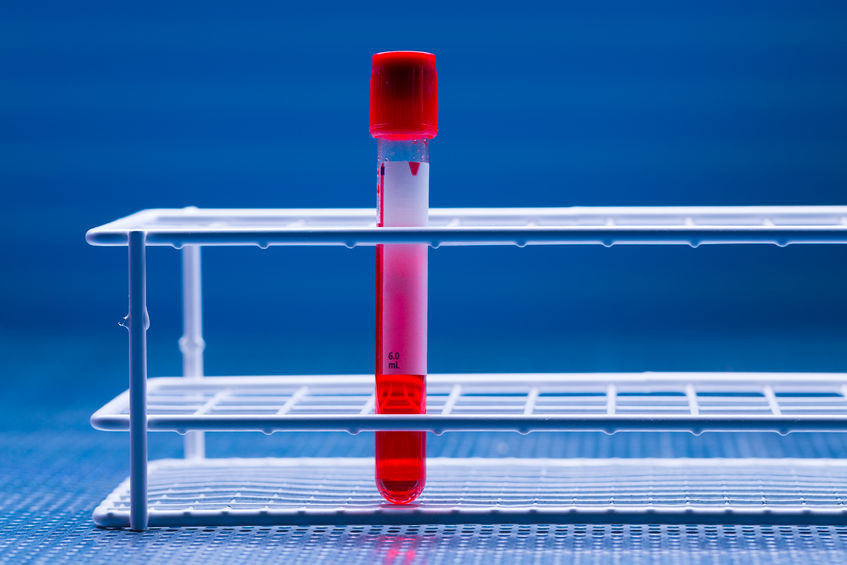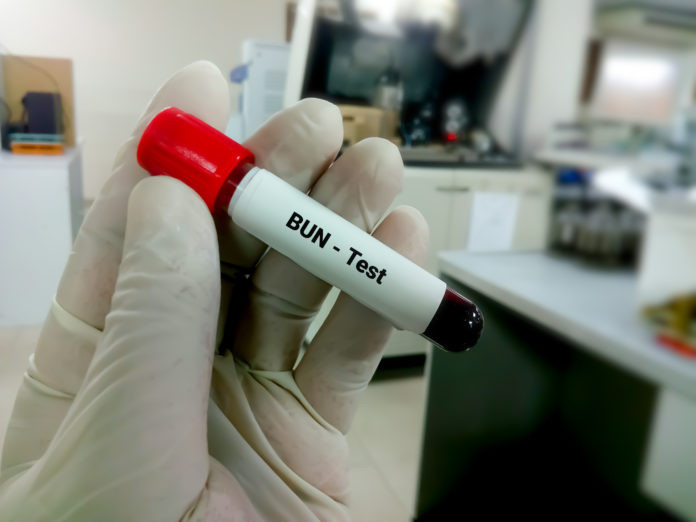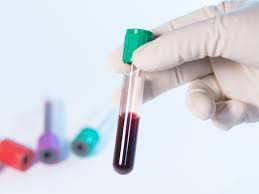Definisi
Antibodi atau immunoglobulin memiliki peran penting pada sistem imunitas tubuh. Imunoglobulin merupakan protein yang terbentuk atau dihasilkan oleh sel imun yang disebut dengan plasma sel pada sistem imun untuk melawan benda asing dari luar tubuh seperti virus dan bakteri.
Antibodi kardiolipin (ACA) merupakan antibodi yang dihasilkan oleh sistem imun yang mungkin disalahkan sebagai target sistem imun tubuh sebagai kardiolipin, yaitu senyawa yang ditemukan pada bagian luar lapisan sel dan keping darah. Antibodi ini dapat memengaruhi kemampuan tubuh untuk mengatur pembekuan darah yang masih belum diketahui. Kardiolipin dan fosfat lain yang terkait merupakan molekul lipid memiliki peran penting dalam proses pembekuan darah.
Antibodi kardiolipin memiliki target kardiolipin dan terkait dana peningkatan pada kembuhnya kembali pembekuan darah pada pembuluh darah vena dan arteri seperti pada kaki (deep vein leg) atau paru-paru (embolisme paru). Selain itu, antibodi kardiolipin juga terkait dengan keping darah yang rendah, keguguran yang berulang, kehamilan prematur dan preeklamsia.
Antibodi IgG merupakan bentuk proteksi jangka panjang melawan mikroorganisme. Pada kondisi sistem imun yang normal, IgG yang kurang akan dihasilkan untuk mencegah infeksi kembali. Antibodi IgG biasanya akan dihasilkan pada infeksi awal atau paparan dari antigen lainnya, lalu akan meningkat setelah beberapa minggu lalu akan terjadi penurunan dan penstabilan. Tubuh anda akan memiliki ingatan akan antibodi IgG yang selainjutnya dapat dihasilkan dengan cepat ketika anda terpapar antigen yang sudah terpapar sebelumnya.
Indikasi
Pemeriksaan ini disarankan oleh dokter bila Anda mengalami pendarahan atau gangguan pembekuan darah. Bila anda sering mengalami keguguran, pemeriksaan ini juga membantu dokter anda dalam menemukan penyebabnya. Pemeriksaan ini juga dilakukan pada pasien dengan gangguan autoimun seperti SLE.
Kontraindikasi
Tidak ada kontraindikasi khusus terkait pemeriksaan anti kardiolipin IgG.
Persiapan Sebelum Pemeriksaan
Tidak ada persiapan khusus sebelum melakukan pemeriksaan antibodi kardiolipin IgG. Pemeriksaan ini tidak mewajibkan Anda puasa sebelumnya kecuali anda juga melakukan pemeriksaan lain yang mengharuskan Anda berpuasa sebelumnya. Informasikan pada dokter mengenai kondisi medis, obat rutin dan suplemen yang Anda konsumsi yang dapat memengaruhi pemeriksaan. Pastikan kondisi Anda terhidrasi dan tidak dalam kondisi stres.
Prosedur Pemeriksaan
Pemeriksaan antibodi kardiolipin IgG menggunakan sampel darah. Petugas laboratorium akan membersihkan lengan Anda dengan alcohol swab dan mengambil sedikit darah dari pembuluh darah vena di lengan menggunakan spuit steril.
Bila darah diambil melalui pembuluh darah, permukaan kulit akan dibersihkan dengan antiseptik dan diikat dengan alat khusus (tourniquet) pada area lengan untuk memberikan tekanan dan menyebabkan pembuluh darah membengkak dengan darah. Jarum mengambil sampel akan dimasukkan melalui pembuluh darah (biasanya pada bagian lengan dalam atau siku atau pada bagian punggung tangan) dan darah akan diambil masuk ke dalam vial atau syringe. Setelah prosedur, tourniquet dilepaskan dan bekas area pengambilan darah akan ditutup dengan perban untuk menghentikan pendarahan.
Selanjutnya, darah akan dimasukan ke dalam tabung darah dan diperiksa oleh petugas laboratorium pada mesin khusus. Pemeriksaan ini mungkin akan memakan waktu sehari untuk mendapatkan hasil. Risiko pemeriksaan ini cukup minimal Beberapa orang merasakan nyeri, pusing, dan memar saat pengambilan darah. Namun, hal ini biasanya hilang dengan cepat. Prosedur pemeriksaan ini cukup sederhana dan biasanya akan memakan waktu hingga 10 menit untuk mengambil darah darah dan merapikannya.
Nilai Normal dan Abnormal
Nilai normal pemeriksaan dari Antikardiolipin IgM menunjukkan nilai negatif dan nilai abnormal menunjukkan nilai positif.
Rentang nilai normal pemeriksaan bervariasi antara jenis kelamin, usia dan dimana Anda melakukan pemeriksaan.
Nilai normal pemeriksaan Antikardiolipin IgG memiliki nilai <15 GPL U/ml dan nilai abnormal atau positif dengan nilai > 20 GPL U/ml. Dokter akan menyarankan melakukan pemeriksaan kembali dengan nilai 15 - 20 GPL U/ml.
Hasil dan Saran (Pemeriksaan Lanjutan)
Hasil pemeriksaan Antikardiolipin IgG tidak dapat berdiri sendiri sehingga dokter juga akan menyarankan anda melakukan pemeriksaan antibodi lainnya seperti IgM dan IgA. Jika kadar antikardiolipin IgG yang lebih tinggi maka Anda mungkin memiliki sindrom antibodi kardiolipin.
Anda mungkin akan disarankan melakukan pemeriksaan kembali untuk melihat apakah antibodi tersebut masih ada di dalam tubuh dengan waktu tunggu sekitar 12 minggu antara pemeriksaan. Bila Anda memiliki hasil negatif pada pemeriksaan Antikardiolipin IgG, hal tersebut menunjukkan kondisi yang normal.
Baca Juga: ACA IgM - Indikasi, Kontraindikasi, Hasil dan Saran
Konsultasikan ke Dokter yang Tepat
Bila hasil pemeriksaan antibodi kardiolipin IgG Anda tidak normal, Anda dapat berkonsultasi dengan dokter umum untuk mendapatkan diagnosis dan terapi yang sesuai serta pemeriksaan lanjutan bila dirasa perlu dalam penegakan diagnosis. Bila diperlukan, Anda juga dapat berkonsultasi dengan dokter spesialis penyakit dalam terkait kondisi Anda. Pada pasien anak-anak, dokter spesialis anak dapat memberikan informasi dan terapi yang lebih detail.
Mau tahu informasi seputar hasil pemeriksaan laboratorium, radiologi, dan lainnya? Cek di sini, ya!
- dr. Monica Salim
Cardiolopin Antibody Test. (2021). Retrieved 05 June 2023, from https://www.testing.com/tests/cardiolipin-antibodies/
Anticardiolopin Antibody (ACL). (2022). Retrieved 05 June 2023, from https://www.southtees.nhs.uk/services/pathology/tests/anti-cardiolipin-antibody-acl/
Anticardiolipin Antibody. (2020). Retrieved 05 June 2023, from https://emedicine.medscape.com/article/2084956-overview
Cardiolipin Antibody. (2023). Retrieved 05 June 2023, from https://www.urmc.rochester.edu/encyclopedia/content.aspx?contenttypeid=167&contentid=cardiolipin_antibody











